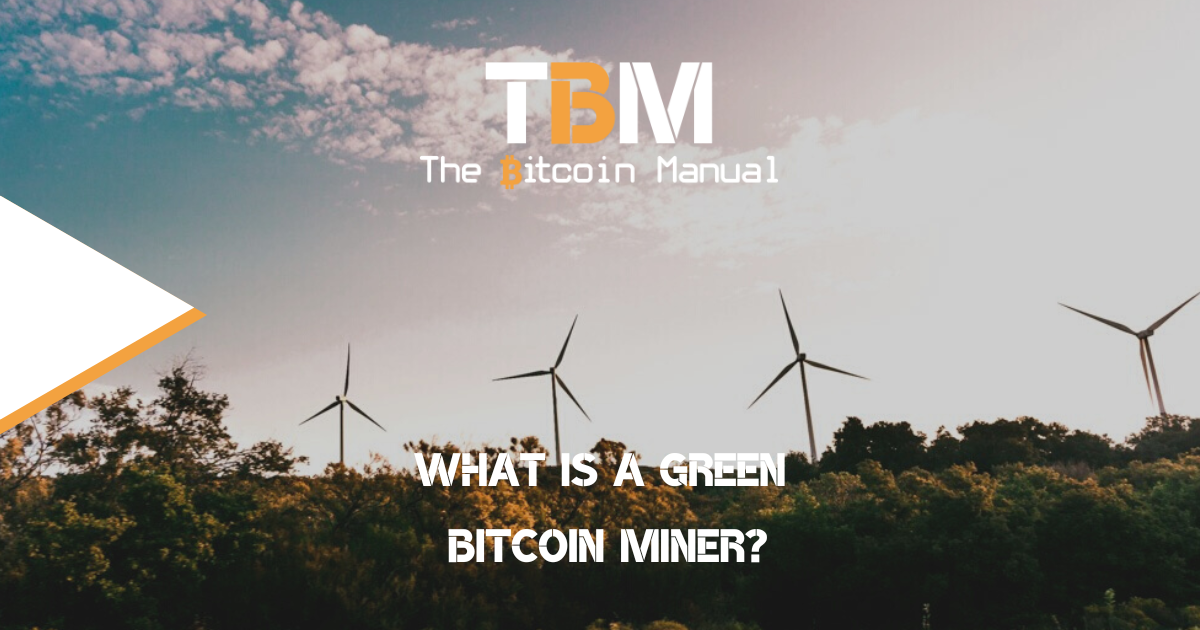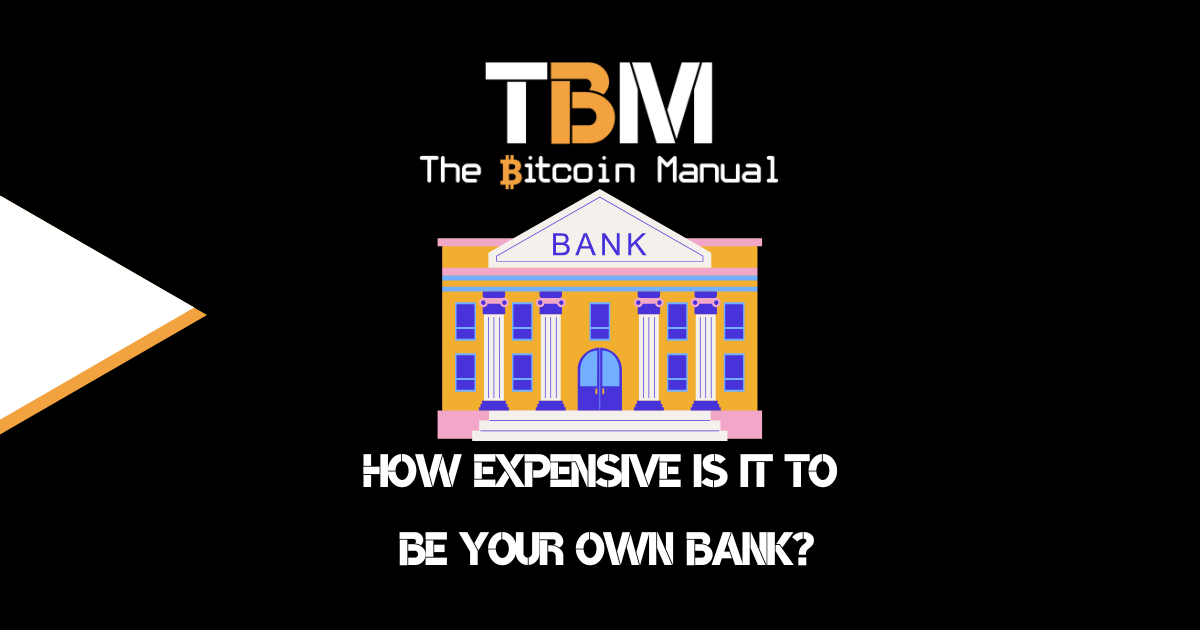Bitcoin mining requires increasing amounts of energy to power the computers that verify and record secured transactions on the time chain. Miners are on a mission to constantly source the cheapest forms of energy and the most reliable to keep their rigs running 24 hours a day. In some cases, this energy may come from the burning of coal or fossil fuels, a source of carbon emissions which hold a negative stigma and has become a social issue.
On the other end of the energy, the production spectrum is unreliable but subsidised and promoted green energy. In contrast, green bitcoin mining draws power from renewable energy sources such as solar power, hydroelectric power, and nuclear energy that emit little or no carbon in energy production. The term green energy is but a label, and labels can change, as we’ve seen with bitcoin miners moving to capture flared gas, which is now considered “Green”.
The fact is there is no such thing as “green energy” because fossil fuels or hydrocarbons make up some part of all of their supply chains. There is no net zero or carbon neutral, these are all marketing terms, but if you want to play in the energy sector, deal with political pressure and source “ESG capital” that comes with conditions, you have to play by these rules and pander to these labels.
When is bitcoin mining be considered green or sustainable?
To understand whether bitcoin mining is green or sustainable, it is first important to understand how a bitcoin mining company secures its energy. As I mentioned, “green” is a moving target and some ways to communicate sustainability involve claiming bitcoin mining is “zero carbon” or “carbon neutral”, but these are not the same thing.
- Zero carbon means that no carbon emissions were produced during the creation of a product or a service.
- Carbon neutrality involves removing as much carbon from the atmosphere as was created after it was created.
This neutrality can be achieved through accounting gimmicks known as carbon credits or offsets markets, where payments support activities that support the removal of carbon from the atmosphere, such as preserving or planting forests or funding “greener” businesses.
The idea that carbon neutrality is a sustainable practice has been criticised because carbon credit/offset activities may not permanently reduce carbon. Still, it’s now a trillion-dollar derivatives market and is not going anywhere as long as rent-seeking traders can profit from its existence.
Carbon credits are nothing but proof of stake environmentalism and do very little to further the aims paraded by climate activists. While the debate on zero versus neutral rages on, the primary case for calling yourself a bitcoin miner is by tethering yourself to an unreliable energy source or a stranded energy source.
Bitcoin and its relationship with renewable energy
Bitcoin miners have no allegiance to any specific type of energy production; all they are seeking is constant energy at the cheapest rates, and in some parts of the world, embracing renewable energy made the most economic sense.
Bitcoin and hydroelectricity
For example, hydropower resources in Quebec and British Columbia have attracted miners, some of whom have even built out their electricity infrastructure to tap into the unused capacity generated by the natural resources in the area.
Bitcoin mining company Argo Blockchain secured a $25 million loan to fund its “green” Texas Bitcoin mine. The 320-acre site will use only renewable energy, the majority being hydroelectric.
Another example of hydroelectric value being unlocked comes from a small town in Upstate New York, where an ageing hydroelectric plant was revived when its owners hooked up some bitcoin mining rigs. The owners claim they make more money using it to mine Bitcoin than by selling the electricity to National Grid.
Bitcoin and geothermal energy
El Salvador, a relatively low-income country in Central America, is hoping to generate some cash with its state-owned geothermal energy plants. It hasn’t yet started the project.
While in Kenya’s energy production company, KenGen, wants to offer bitcoin mining companies its surplus geothermal power to help them meet their energy needs.
Bitcoin and solar energy
Miners like Marathon, which is a member of the Bitcoin Mining Council and aims to go 70% carbon neutral using wind and solar.
Blockstream and Jack Dorsey’s Block, formerly Square, are breaking ground on a solar- and battery-powered bitcoin mine in Texas using solar and storage technology from Tesla.
Aspen Creek Digital Corp. a new bitcoin miner, has started mining at a six-megawatts solar-powered facility in the western part of Colorado.
Bitcoin and wind energy
Texas has also seen a boom in wind power in the last decade. The state’s deregulated power grid makes it a top destination for miners seeking low rates from providers who need a customer for energy when more wind power is generated than the grid can send.
While wind energy is available in many places worldwide, the U.S. also provides a friendly environment for Bitcoin miners. Texas, for example, is already attracting Chinese miners looking to escape their government’s harsh crackdowns. Wind energy—which is abundant in the state due to an abundance of land—is cheap. Estimates claim that miners can get energy for 2 cents per kWh.
Greenwashing bitcoin
According to the Bitcoin Mining Council, the network continues to draw most of its power from so-called renewable energy with a 59.4% sustainable energy mix. However, critics of bitcoin feel this is still not good enough and dismiss the efficiencies bitcoin energy demand brings to grid management and capital bitcoin drives into any production and exploration.
In the eyes of climate activists, there is no way to win; even if bitcoin was deemed to use 100% renewable energy and it was 100% provable, the critique would move towards that energy could be used for “other industries’ yet if that was the case other industries would outcompete bitcoin for that energy use by buying up more of it and producing value at a lower cost.
It’s also worth noting here that while many see carbon offsetting schemes like this as helpful marketing to keep political pressure off bitcoin in the medium term, it won’t last forever. Some environmental activists are already pointing to their next attack on bitcoin, which is the producing tons of e-waste in the form of spent equipment from ASIC miners and cooling operations.
One estimate pegged the bitcoin network’s annual e-waste production as equivalent to that of the Netherlands. Today every major industry produces e-Waste in multiples far higher than the bitcoin network and produces very little or negative value. Yet, bitcoin burning through chips and motherboards seems to be a net negative versus those who burn through them to play video games or create TikToks.
This goes to show that there will be no resolving the conflict with environmentalists as they continue to move the bar, and the aim to greenwash bitcoin will always be a losing proposition.
Are you investing in the bitcoin ecosystem?
Do you invest in bitcoin mining? Are you considering bitcoin mining? Have you been mining for some time? Let us know in the comments down below.




